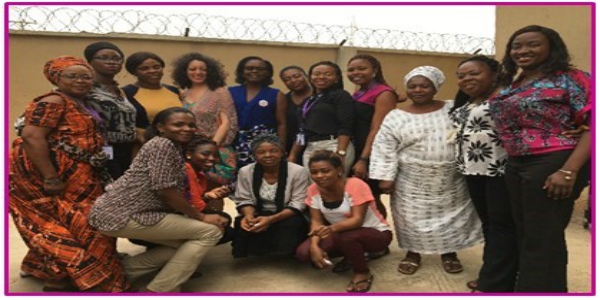
“Safe abortion, my right; safe abortion, my choice. I say it loud, ‘cause I’m proud of it. Safe abortion, my right!”
Advocates working with the National Coalition for Reproductive Justice sing these bold words in communities across Lagos, Nigeria. Their catchy rhythms and lyrics educate other women on reproductive health and their rights, including accessing safe abortion and post-partum haemorrhage and post-abortion care. The International Women’s Health Coalition’s newest grantee partner, Generation Initiative for Women and Youth Network (GIWYN), supports the National Coalition and trains its members to raise awareness in communities where access to sexual and reproductive information and services are hard to find.
Abortion is criminalized in Nigeria except when the life of a woman is at risk. In some northern regions of the country, where sharia law is widespread and Boko Haram is active, abortion services are not accessible at all. Administrative barriers, coupled with widespread patriarchal beliefs and practices, make access to abortion extremely limited for women, and even more out of reach for girls. To procure a legal abortion, a woman must obtain permission from a physician and a gynaecologist, and many times providers demand consent from her husband too. Unmarried women or those who fail to gain their husband’s consent are often left with no safe options. The country has one of the highest maternal mortality ratios in the world, due in large part to unsafe abortion.
GIWYN runs a hotline called “Ms. Rosy,” which provides accurate and non-judgmental reproductive health and rights information to callers, including information on abortion. Since its launch in 2014, the hotline has received approximately 135,000 calls from across Nigeria. Because abortion is so severely restricted in Nigeria, GIWYN uses a harm reduction model. Trained professionals provide callers with accurate information on how to use misoprostol, which is available over-the-counter and can be used to terminate pregnancies. For women who face innumerable barriers to accessing abortion services, using misoprostol is safer than the methods the women may resort to otherwise…
SOURCE: International Women’s Health Coalition, by Erin Williams, 17 August 2017



